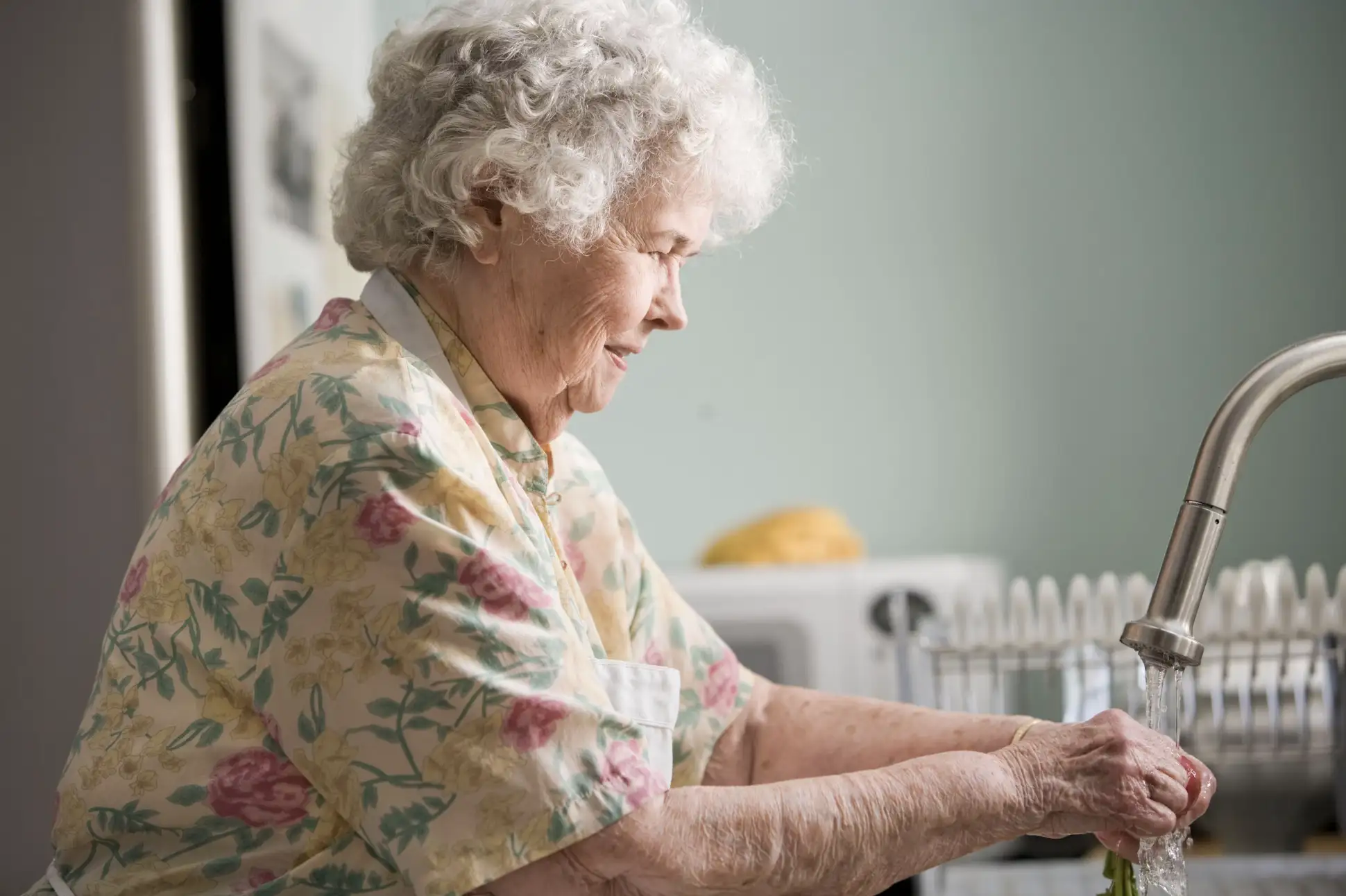Understanding dementia stages is crucial for families navigating this challenging journey. While every person’s experience with dementia is unique, recognizing the typical progression can help you prepare, plan, and provide the best possible care for your loved one.
This comprehensive guide explores the 7 stages of dementia, from early symptoms to end-stage care, helping you understand what to expect and how to support your family member at each phase.
What Are the Stages of Dementia?
Dementia is not a single disease but a group of conditions affecting memory, thinking, and social abilities. The most commonly used framework is the 7 stages of dementia model, also known as the Global Deterioration Scale (GDS), developed by Dr. Barry Reisberg.
Understanding these stages helps families:
- Recognize changes early
- Plan for future care needs
- Make informed decisions about treatment
- Access appropriate support services
- Prepare emotionally for the journey ahead
The 7 Stages of Dementia: A Detailed Breakdown
Stage 1: No Cognitive Decline (Normal Function)
At this stage, there are no noticeable symptoms of dementia. Memory and cognitive abilities function normally, and the person can perform all daily activities independently.
Key characteristics:
- Normal memory function
- No difficulty with complex tasks
- Independent living
- No behavioral changes
Stage 2: Very Mild Cognitive Decline (Normal Forgetfulness)
This stage involves minor memory lapses that may be age-related rather than dementia-specific. Many people in their 60s and 70s experience these changes.
Common symptoms:
- Occasional forgetfulness (misplacing keys, forgetting names)
- Difficulty finding the right word occasionally
- Minor memory lapses that don’t affect daily life
- No significant impact on work or social functioning
What families can do:
- Maintain routine medical check-ups
- Encourage healthy lifestyle habits
- Monitor for progression of symptoms
Stage 3: Mild Cognitive Decline (Early-Stage Dementia)
This is when changes become more noticeable to family members and friends. Symptoms begin to interfere with daily activities and work performance.
Symptoms include:
- Increased forgetfulness and confusion
- Difficulty concentrating
- Decreased work performance
- Getting lost in familiar places
- Trouble finding words
- Losing valuable objects
- Difficulty planning and organizing
Duration: Typically lasts 2-7 years
Support strategies:
- Begin documenting symptoms for medical appointments
- Consider cognitive assessments
- Start discussing future care preferences
- Maintain social engagement
- Implement memory aids and routines
Stage 4: Moderate Cognitive Decline (Mild Dementia)
Clear cognitive decline becomes evident, and professional diagnosis typically occurs at this stage. The person may still live independently but requires increasing support.
Key symptoms:
- Difficulty with complex tasks (managing finances, planning meals)
- Reduced memory of recent events
- Trouble recognizing faces or names
- Difficulty traveling alone
- Withdrawal from challenging situations
- Mood changes and denial of symptoms
Duration: Typically lasts 2 years
Care considerations:
- Formal dementia assessment and diagnosis
- Legal and financial planning (power of attorney, wills)
- Safety assessments of the home environment
- Consider adult day programs
- Family education about dementia
Stage 5: Moderately Severe Cognitive Decline (Moderate Dementia)
Significant assistance with daily activities becomes necessary. Memory gaps become more noticeable, and confusion increases.
Major symptoms:
- Confusion about time, place, and events
- Difficulty remembering personal information (address, phone number)
- Trouble choosing appropriate clothing
- Inability to manage finances independently
- Need for help with some personal care
- Disorientation in familiar settings
Duration: Typically lasts 1.5 years
Care needs:
- Supervision for safety
- Assistance with daily activities
- Home modifications for safety
- Regular medical monitoring
- Caregiver support services
- Consider respite care options
Stage 6: Severe Cognitive Decline (Moderately Severe Dementia)
Extensive supervision and professional care become necessary. Personality changes and behavioral symptoms often emerge.
Symptoms include:
- Significant memory loss
- Requiring assistance with basic activities (dressing, bathing)
- Incontinence issues
- Sleep disturbances
- Wandering and agitation
- Paranoia or delusions
- Difficulty recognizing family members
- Major personality changes
Duration: Typically lasts 2.5 years
Care requirements:
- 24-hour supervision
- Professional care services
- Specialized dementia care programs
- Behavioral management strategies
- Medical management of symptoms
- Family caregiver support and respite
Stage 7: Very Severe Cognitive Decline (Severe Dementia)
This final stage requires intensive, round-the-clock care. The person loses the ability to communicate meaningfully and needs assistance with all daily activities.
End-stage characteristics:
- Loss of ability to speak coherently
- Inability to walk without assistance
- Requires help with eating and swallowing
- Loss of bladder and bowel control
- Increased susceptibility to infections
- Limited awareness of surroundings
Care focus:
- Comfort care and quality of life
- Specialized nursing care
- Palliative care considerations
- Family support and grief counseling
- End-of-life planning
Understanding Dementia Progression: Important Considerations
Individual Variation
While the 7-stage model provides a helpful framework, it’s important to remember that:
- Progression varies significantly between individuals
- Some stages may overlap or occur out of sequence
- Symptoms can fluctuate day by day
- External factors affect progression (health, environment, support)
Factors Affecting Progression
Several factors influence how quickly dementia progresses:
- Type of dementia (Alzheimer’s, vascular, Lewy body, etc.)
- Age at onset (earlier onset often progresses faster)
- Overall health and management of other conditions
- Social support and engagement
- Physical activity and mental stimulation
- Quality of care and environment
Planning for Each Stage: Practical Steps
Early Stages (1-3)
- Establish baseline cognitive assessments
- Create advance directives and legal documents
- Discuss preferences for future care
- Maintain social connections and activities
- Focus on brain-healthy lifestyle choices
Middle Stages (4-5)
- Implement safety measures in the home
- Establish care routines and support services
- Access community resources and support groups
- Consider adult day programs
- Plan for increasing care needs
Late Stages (6-7)
- Arrange specialized dementia care
- Focus on comfort and quality of life
- Support family caregivers
- Consider palliative care options
- Address end-of-life planning
Getting Support Through the Journey
Professional Support
- Geriatricians for medical management
- Neurologists for specialized assessment
- Social workers for care coordination
- Occupational therapists for daily living support
- Speech therapists for communication strategies
Community Resources
- Dementia Australia support services
- Local Alzheimer’s associations
- Caregiver support groups
- Adult day programs
- Respite care services
Home Care Services
Professional home care can support families through all stages:
- Personal care assistance
- Medication management
- Household support
- Companionship and social engagement
- Specialized dementia care programs
When to Seek Professional Help
Consider professional assessment if you notice:
- Memory problems affecting daily life
- Difficulty planning or solving problems
- Confusion about time or place
- Changes in mood or personality
- Withdrawal from social activities
- Poor judgment or decision-making
Early intervention can help:
- Slow progression through medical treatment
- Plan for future care needs
- Access support services
- Maintain quality of life longer
Supporting Caregivers Through the Stages
Caring for someone with dementia is emotionally and physically demanding. Caregiver support includes:
- Education about dementia and care strategies
- Respite services to prevent burnout
- Support groups for emotional support
- Professional counseling for coping strategies
- Practical assistance with care tasks
Conclusion: Understanding and Navigating Dementia Stages
Understanding the stages of dementia helps families prepare for the journey ahead while focusing on maintaining quality of life and dignity at every stage. While the progression can be challenging, knowing what to expect allows for better planning, appropriate support, and meaningful moments together.
Remember that each person’s journey with dementia is unique. Focus on:
- Celebrating abilities that remain
- Maintaining connections and relationships
- Accessing professional support when needed
- Taking care of caregivers too
- Making the most of each day
If you’re concerned about dementia symptoms in yourself or a loved one, consult with healthcare professionals for proper assessment and support planning.
Frequently Asked Questions
How long do the 7 stages of dementia last?
The progression through dementia stages varies significantly between individuals. Early stages (1-3) can last many years, while middle stages (4-5) typically progress over 2-4 years, and late stages (6-7) may last 2-5 years. Overall, from diagnosis to end-stage can range from 4-20 years.
What are the signs someone is entering Stage 5 dementia?
Stage 5 (moderate dementia) signs include confusion about time and place, difficulty remembering personal information like address or phone number, needing help choosing appropriate clothing, inability to manage finances independently, and requiring assistance with some personal care tasks.
Can dementia progression be slowed down?
While dementia cannot be cured, progression can potentially be slowed through medical treatments, maintaining physical activity, social engagement, mental stimulation, managing other health conditions, and ensuring proper nutrition and sleep.
How do you know when someone needs 24-hour care?
24-hour care typically becomes necessary during Stage 6-7 when the person experiences wandering, safety concerns, significant behavioral changes, requires assistance with most daily activities, or poses a danger to themselves or others when left alone.
What’s the difference between dementia stages and Alzheimer’s stages?
The 7-stage model applies to various types of dementia, including Alzheimer’s disease. Alzheimer’s is the most common type of dementia, so the stages often align closely. However, other types of dementia (vascular, Lewy body, frontotemporal) may progress differently.
Should you tell someone they have dementia?
Generally, yes. People have a right to know their diagnosis and participate in planning their care. However, the approach should be compassionate, with appropriate support, and sometimes the information may need to be shared gradually depending on the person’s stage and ability to understand.

